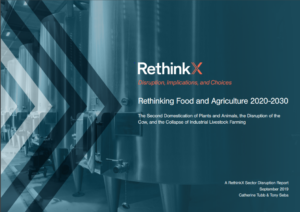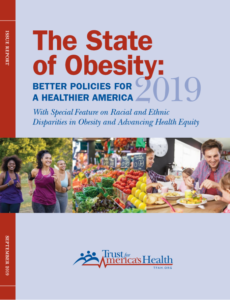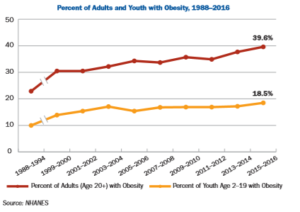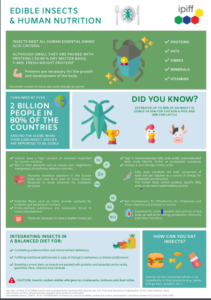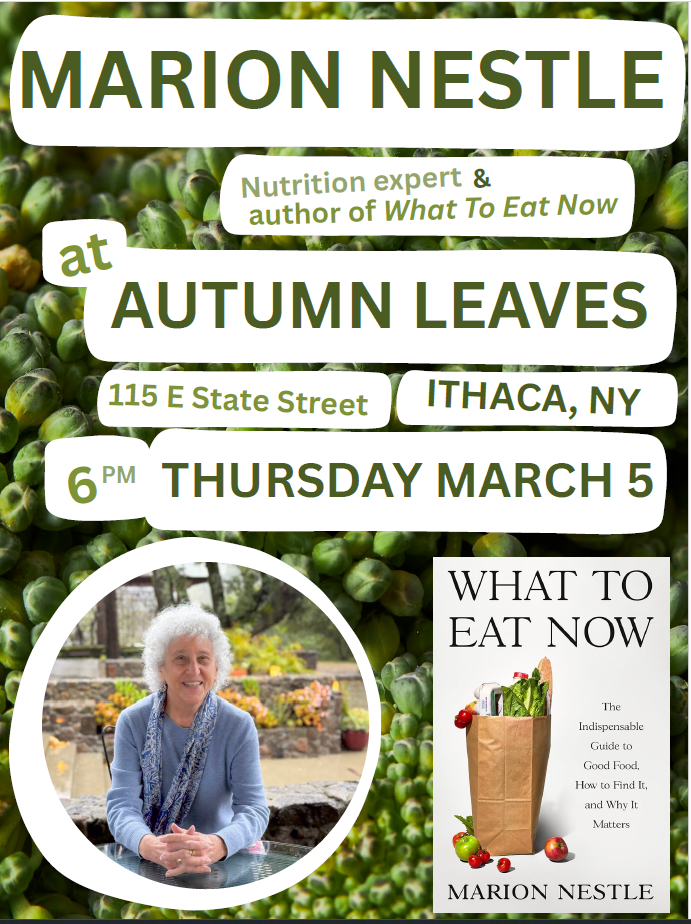Industry-funded studies of the week: Yogurt
These three papers were part of a supplement to Advances in Nutrition published in September 2019: Supplement—6th Yogurt in Nutrition Initiative (YINI) Summit / More than the Sum of Its Parts, sponsored by Danone Institutes International. Publication costs for this supplement were defrayed in part by the payment of page charges.
I. Introduction to the Sixth Global Summit on the Health Effects of Yogurt: Yogurt, More than the Sum of Its Parts. Sharon M Donovan ; Olivier Goulet. Advances in Nutrition, Volume 10, Issue 5, September 2019, Pages 913S–916S.
Conclusion: “Ultimately, the inclusion of fermented dairy products in food-based dietary guidelines, not only as a dairy option, but as a significant source of viable bacteria and fermentation products, could contribute to improved public health and should be considered.”
Author disclosures: “The guest editor of the supplement has the following conflict of interest: SMD co-chairs the Yogurt in Nutrition Initiative. She received reimbursement for travel expenses and an honorarium from Danone Institutes International for chairing the Sixth International Yogurt in Nutrition Summit at the Nutrition 2018 meeting in June 2018 in Boston, MA….SMD and OG are co-chairs of the Yogurt in Nutrition Initiative. Travel expenses and an honorarium were paid to SMD and OG by Danone Institutes International for chairing the Sixth International Yogurt in Nutrition Summit at the Nutrition 2018 meeting in June 2018 in Boston, MA. OG is also the Chair of Danone Institutes International.
II. Dairy Foods, Obesity, and Metabolic Health: The Role of the Food Matrix Compared with Single Nutrients. Dariush Mozaffarian. Advances in Nutrition, Volume 10, Issue 5, September 2019, Pages 917S–923S,
Conclusion: “The present evidence suggests that whole-fat dairy foods do not cause weight gain, that overall dairy consumption increases lean body mass and reduces body fat, that yogurt consumption and probiotics reduce weight gain, that fermented dairy consumption including cheese is linked to lower CVD risk, and that yogurt, cheese, and even dairy fat may protect against type 2 diabetes. Based on the current science, dairy consumption is part of a healthy diet, without strong evidence to favor reduced-fat products; while intakes of probiotic-containing unsweetened and fermented dairy products such as yogurt and cheese appear especially beneficial.”
Disclosures: “DM received an honorarium from the American Society of Nutrition for the preparation of this manuscript. A freelance science writer, Denise Webb, was supported by Danone Institute International to prepare an initial draft of this manuscript for DM based on a recording of his talk and slides at the American Society of Nutrition 2018 Congress. The final manuscript was edited in detail and approved by DM. The funders had no role in the design, analysis, interpretation, review, or final approval of the manuscript for publication…DM reports research funding from the NIH and the Gates Foundation; personal fees from GOED, Nutrition Impact, Pollock Communications, Bunge, Indigo Agriculture, Amarin, Acasti Pharma, Cleveland Clinic Foundation, and America’s Test Kitchen; scientific advisory board, Elysium Health (with stock options), Omada Health, and DayTwo; and chapter royalties from UpToDate; all outside the submitted work.”
III. Effects of Full-Fat and Fermented Dairy Products on Cardiometabolic Disease: Food Is More Than the Sum of Its Parts. Arne Astrup; Nina Rica Wium Geiker; Faidon Magkos. Advances in Nutrition, Volume 10, Issue 5, September 2019, Pages 917S–923S.
Conclusion: “Although more research is warranted to adjust for possible confounding factors and to better understand the mechanisms of action of dairy products on health outcomes, it becomes increasingly clear that the recommendation to restrict dietary saturated fat to reduce risk of cardiometabolic disease is getting outdated. Therefore, the suggestion to restrict or eliminate full-fat dairy from the diet may not be the optimal strategy for reducing cardiometabolic disease risk and should be re-evaluated in light of recent evidence.”
Disclosures. “NRWG and FM, no conflicts of interest. AA is a member of advisory boards/consultant for BioCare Copenhagen, Denmark; Dutch Beer Institute, Netherlands; Gelesis, United States; Groupe Éthique et Santé, France; McCain Foods Limited, United States; Novo Nordisk, Denmark; Pfizer, United States; Saniona, Denmark; and Weight Watchers, United States. AA has received travel grants and honoraria as a speaker for a wide range of Danish and international consortia. AA is co-owner and member of the board of the consultancy company Dentacom Aps, Denmark; cofounder and co-owner of UCPH spin-outs Mobile Fitness A/S, Flaxslim ApS, and Personalized Weight Management Research Consortium ApS (Gluco-diet.dk). He is coinventor of a number of patents owned by the University of Copenhagen, in accordance with Danish law. He is coauthor of a number of diet and cookery books, including books on personalized diet approaches. AA is not an advocate or activist for specific diets and is not strongly committed to any specific diet.”
Comment
These papers aim to dispute the idea that full-fat dairy products but have negative health effects. This is a legitimate scientific question that deserves investigation and analysis, preferably by studies funded by independent sources. Industry-funded studies and opinion pieces are well known to produce results and conclusions favorable to the sponsor’s interest, as is the case here.

